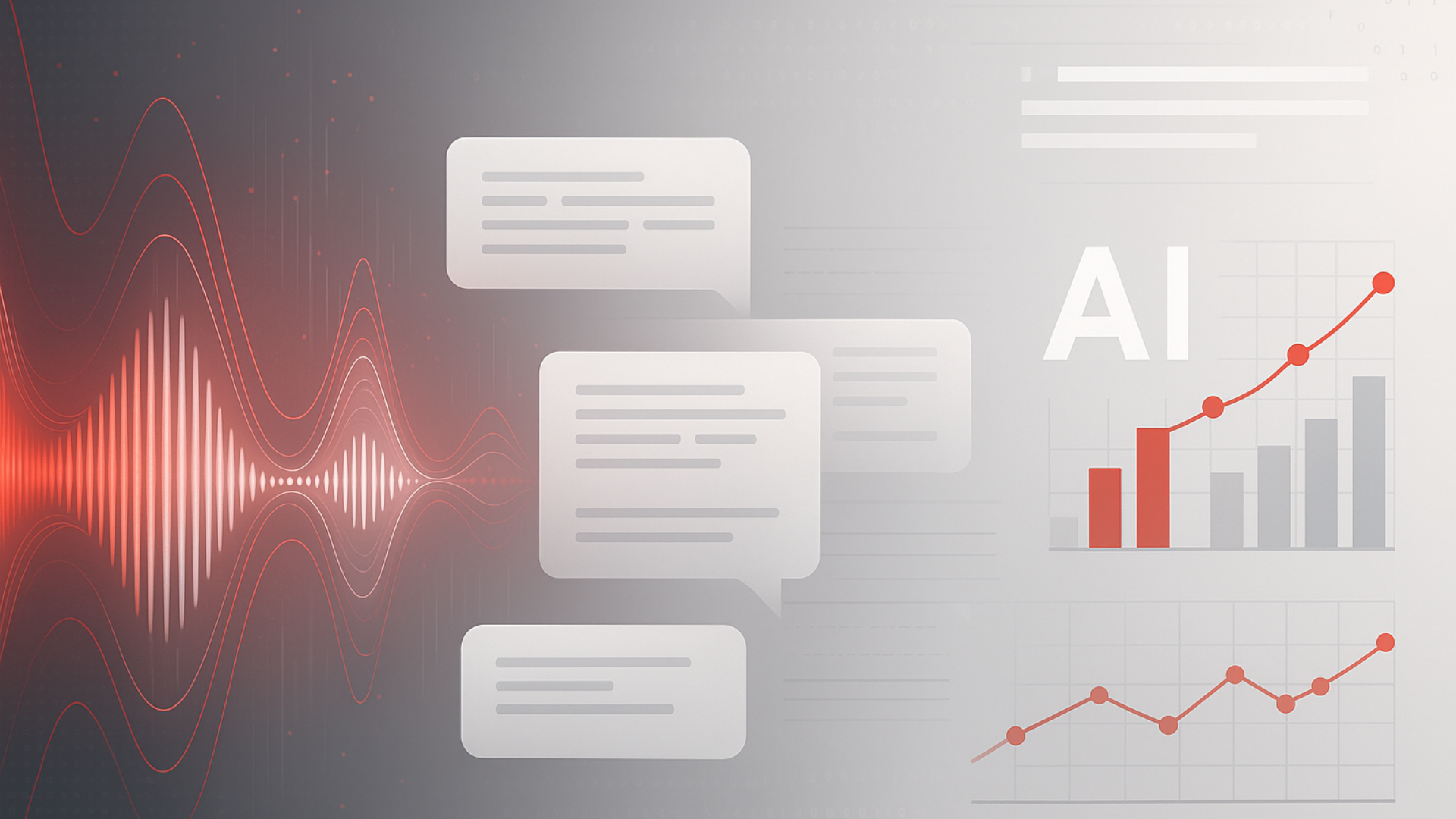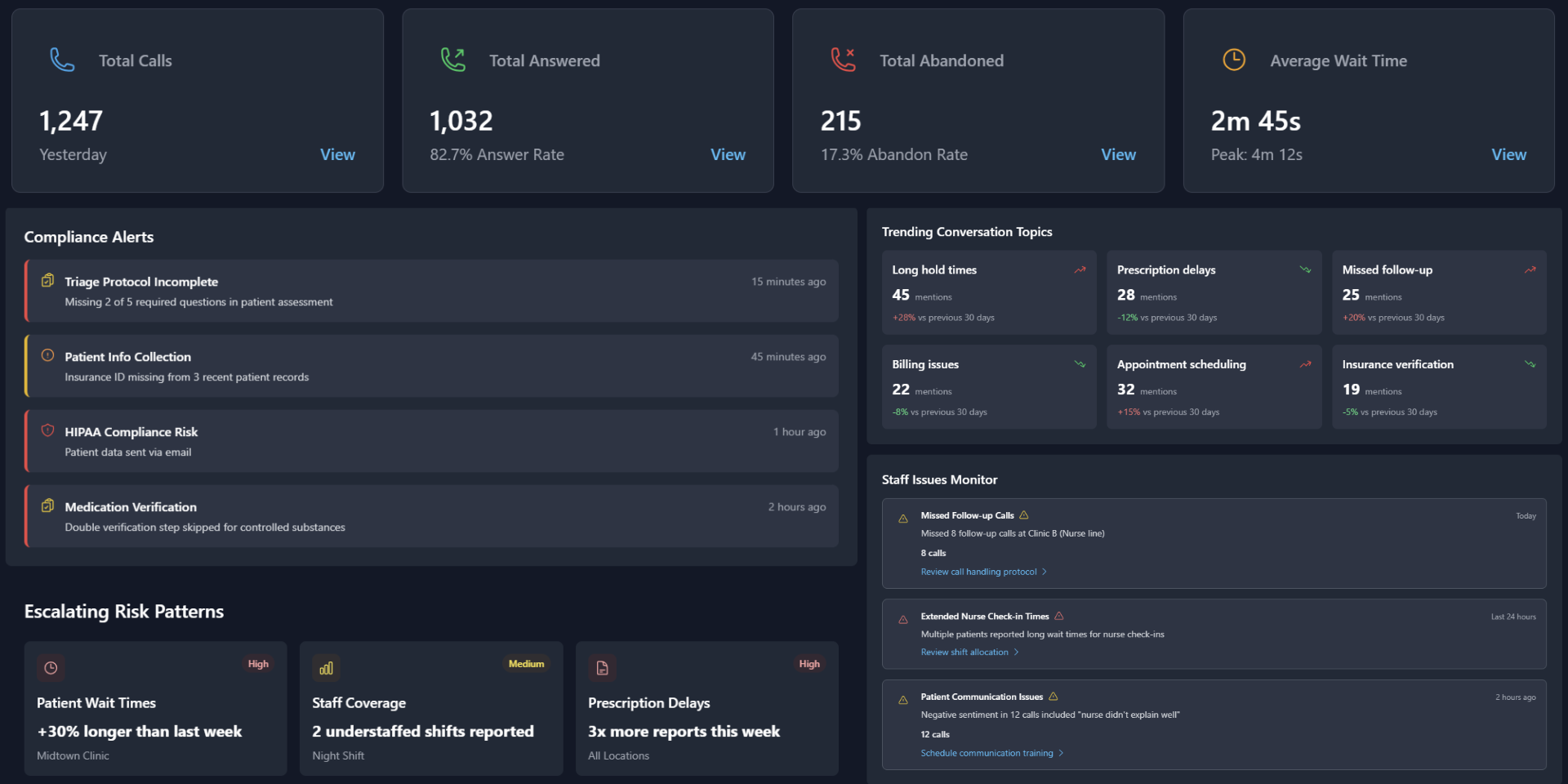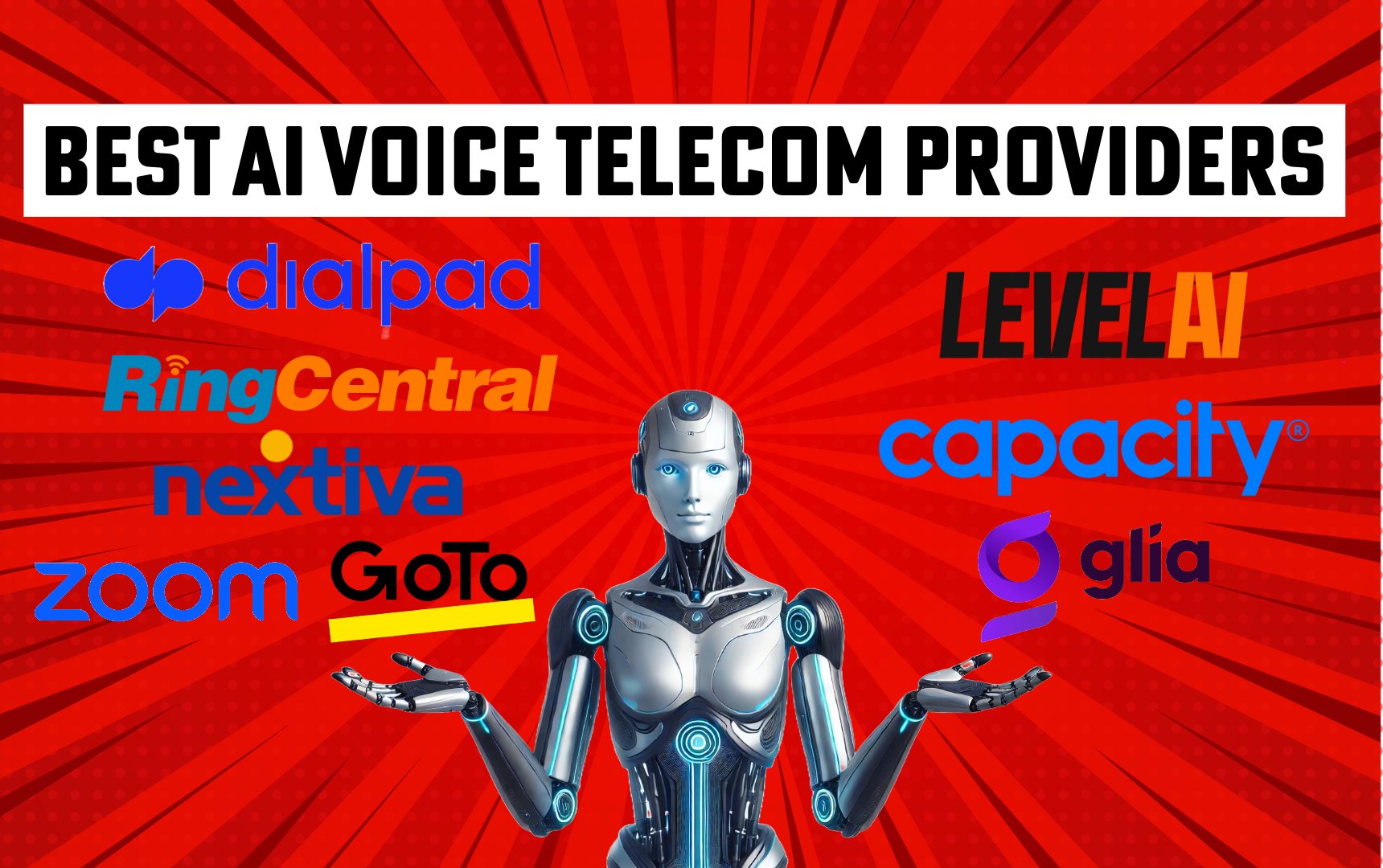What Is Agentic AI? The Future of CX or Just More AI Noise?
September 2nd, 2025
5 min read
By Matt Gavin

Agentic AI is a new wave of artificial intelligence designed to take action, not just answer questions. While traditional AI tools help you find information or guide decisions, agentic AI is built to complete tasks, execute workflows, and solve problems on your behalf. It’s a shift from passive interaction to active participation, and it’s already reshaping how businesses approach customer experience (CX), support, and operations.
Let’s be honest: most of us have struggled with clunky phone menus or support chatbots that don’t quite get the job done. Agentic AI flips that script. Imagine calling a business and being greeted by an AI that not only understands your issue but actively works to resolve it, without transferring you five times.
At TeleCloud, we’ve seen both the promise and limitations of AI in telecom. We build intelligent communication platforms, so it’s in our DNA to test what’s real and what’s hype. While some agentic AI solutions still have a long way to go, the practical use cases are already starting to deliver real value for CX.
In this guide, we’ll break down what agentic AI really is, how it compares to traditional tools, and what steps businesses can take to start benefiting from it today.
How Is Agentic AI Different From Chatbots or Other AI Tools?
The main difference is in what the AI does:
- Chatbots give answers based on pre-fed data.
- Agentic AI carries out instructions on its own.
Traditional AI is reactive. You need to know what to ask and when to ask it. Agentic AI is proactive. It can read the situation, connect systems, and take action.
Here’s a quick comparison to illustrate the difference:
|
Feature |
Chatbots |
Agentic AI |
|
Interaction Style |
Reactive |
Proactive |
|
Task Completion |
Provides information |
Executes workflows and tasks |
|
System Integration |
Limited |
Deep integration with CRMs, ERPs, and APIs |
|
Example Use Case |
Shows status |
Updates records automatically |
Instead of saying, “Here’s the answer,” agentic AI says, “I took care of it.”
What Can Agentic AI Actually Do for Telecom and CX Today?
In the telecom world, agentic AI is already replacing static auto attendants with intelligent voice-driven systems.
Rather than the old “Press 1 for Sales, 2 for Support” structure, agentic AI listens, understands context, and routes the caller accordingly. It sounds natural, like a live agent, and is capable of more than just transferring calls.
Example use cases:
- Looks up recent tickets and prompts: “Are you calling about the issue you reported this morning?”
- Recognizes customer data and pulls context from your CRM.
- Opens or updates tickets mid-call without human intervention.
This shift makes every call feel more personal and more efficient.
Where Will Agentic AI Show Up First in Business?
Agentic AI is already active across a range of industries, streamlining processes and improving customer experience. Any repetitive task that can be taught to a level one support rep can likely be handled by agentic AI. Early adoption will likely happen in:
- Small Businesses: Automates tasks like appointment reminders, customer lookups, or service confirmations.
- Sales & Customer Support: Routes repeat callers to the same agent, updates contact info during calls, opens or updates tickets in real-time, and answers basic troubleshooting questions like password resets.
- Medical Practices: Verifies insurance, sends SMS confirmations, adjusts appointment schedules, and streamlines front-desk administrative work.
- Restaurants: Takes orders via phone, confirms preferences, routes orders to the POS system, and ensures accurate communication.
- Retail: Handles inventory lookups, order tracking, returns processing, and provides customers with real-time updates without human input.
Whether you're a local clinic, fast-casual restaurant, or a growing online retailer, agentic AI is already delivering measurable improvements in operational efficiency and CX. These aren’t concepts; they’re working applications businesses are using today.
Will Agentic AI Replace People or Empower Them?
Agentic AI isn’t about cutting jobs. It’s about making your team more effective.
Instead of spending time on low-level tasks, your employees can focus on higher-value work. AI handles the repetitive stuff like resetting passwords, confirming appointments, and updating records, while your team tackles the problems that need human judgment.
Used right, AI helps you get more from the people you already have. That’s better for the business and the employee.
How to Get Started with Agentic AI in Your Business
You don’t have to overhaul everything tomorrow. But ignoring it entirely? That’s a risk.
Start here:
- Identify one workflow that eats up time.
- Look at what’s repeatable and rules-based.
- Test a small agentic AI solution to handle it.
Agentic AI can be tuned to your systems: CRMs, ERPs, ticketing tools. Unlike broad one-size-fits-all tools, the best solutions will be trained on your business, not just generic use cases.
What Are the Limitations and Risks of Agentic AI?
While agentic AI offers exciting potential, it's important to understand its limitations:
- Hallucinations: Like other AI models, agentic AI can sometimes produce inaccurate or misleading responses if not properly trained or tested.
- Data Privacy: Integrating with CRMs and sensitive databases can raise privacy and compliance concerns, especially in regulated industries.
- Over-Automation: Poorly configured AI can automate the wrong tasks or misroute calls, leading to frustrated users and lost time.
- Lack of Context: AI may still miss nuances or emotional cues that a trained human would catch.
Understanding these risks helps ensure that your AI implementation adds value rather than creating new problems. That said, agentic AI is still in its early phases, and it's evolving rapidly. Many of today’s challenges will be minimized as the tools mature.
Staying informed and building basic familiarity now will give your business a major advantage later. The more you understand how these systems work, the better equipped you'll be to implement them effectively when the time is right.
What’s the Risk of Ignoring Agentic AI?
Every delay in adoption is a competitive advantage handed to someone else.
You’re already paying your team to solve problems. If AI can solve 20% of them instantly, that’s time and money you get back. And for the customers? They get faster answers, less friction, and better service.
This isn’t a futuristic concept; it’s a current business advantage.
Why Agentic AI Deserves Your Attention
Agentic AI is more than just hype; it's already helping businesses automate repetitive tasks, improve response times, and enhance customer experiences. Unlike traditional AI that waits for direction, agentic AI acts with context and autonomy.
At TeleCloud, we’re actively exploring agentic AI’s potential. While we don’t yet offer our own solution, we’re helping clients prepare by identifying where these tools can drive efficiency today and into the future.
Wondering How Agentic AI Could Fit Into Your Communication Strategy? Speak with a TeleCloud strategist to explore how AI can streamline your workflows, improve CX, and align with your future communication goals.
Frequently Asked Questions About Agentic AI
What’s the difference between agentic AI and generative AI?
Agentic AI takes action within workflows, while generative AI creates content or responses. Think of agentic AI as executing tasks and generative AI as producing output.
Can small businesses really benefit from agentic AI?
Absolutely. Even simple implementations like automated ordering or appointment confirmation can reduce repetitive work and free up your team for higher-value tasks.
Do I need to replace my entire phone system to use agentic AI?
Not necessarily. Many agentic AI tools can integrate with existing systems or be layered in to improve specific workflows like routing calls, opening support tickets, or looking up CRM data.
How secure is agentic AI when dealing with customer data?
Security depends on the platform and how it’s implemented. Look for solutions that are compliant with industry standards (like HIPAA, SOC 2) and that offer fine-tuned control over data access.
Is agentic AI only useful in telecom and healthcare?
Not at all. While those industries are leading adoption, any business with repeatable tasks, from retail to logistics to legal, can benefit from agentic AI.
Are there any beginner-friendly tools or platforms to try first?
Yes. For early exploration, tools like Zapier, Microsoft Power Automate, and OpenAI’s API integrations offer manageable entry points. Some telecom platforms and CRMs are also beginning to offer built-in agentic AI features; look for those that integrate directly with your current workflows.
Topics:





















